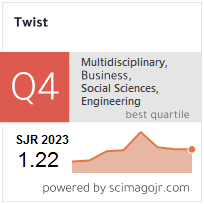Legal Compliance of Waste Management in Tannery Industrial Estate in Bangladesh
An Assessment from Environmental Criminological Perspective
Keywords:
Waste management, Environmental criminology, Environmental laws, Tannery Estate, Occupational HazardsAbstract
The establishment of Savar BSCIC Tannery Industrial Estate (Tannery Estate) as the only tannery industrial estate in the nation marked a significant breakthrough for the leather industry in Bangladesh. However, the lack of effective waste management regulations, utilization of substandard technology, and inadequate facilities for treating industrial wastes are causing the environmental problems in this area to worsen gradually. The capacity of this industry to efficiently amass, process, dispose of, or recycle wastes is substantially limited. This study examines the nature of waste generated and the strategies employed for waste management in this tannery industrial estate. It also evaluates the current situation regarding waste management, specifically from a legal perspective. This was accomplished through the examination of the impacts of waste on human health and the surrounding ecosystem. Data was collected using qualitative techniques, which involved conducting focus group discussions (FGD) and in-depth interviews, as well as employing direct observation methods. The study demonstrates how the existing failures of proper waste management infringe upon established human rights and environmental laws from local and global standards. It also presents a number of recommendations that differ from the current waste management standards in Bangladesh’s BSCIC tannery industrial estate.
Downloads
Downloads
Published
Issue
Section
License
Copyright (c) 2024 TWIST

This work is licensed under a Creative Commons Attribution-NonCommercial-ShareAlike 4.0 International License.











